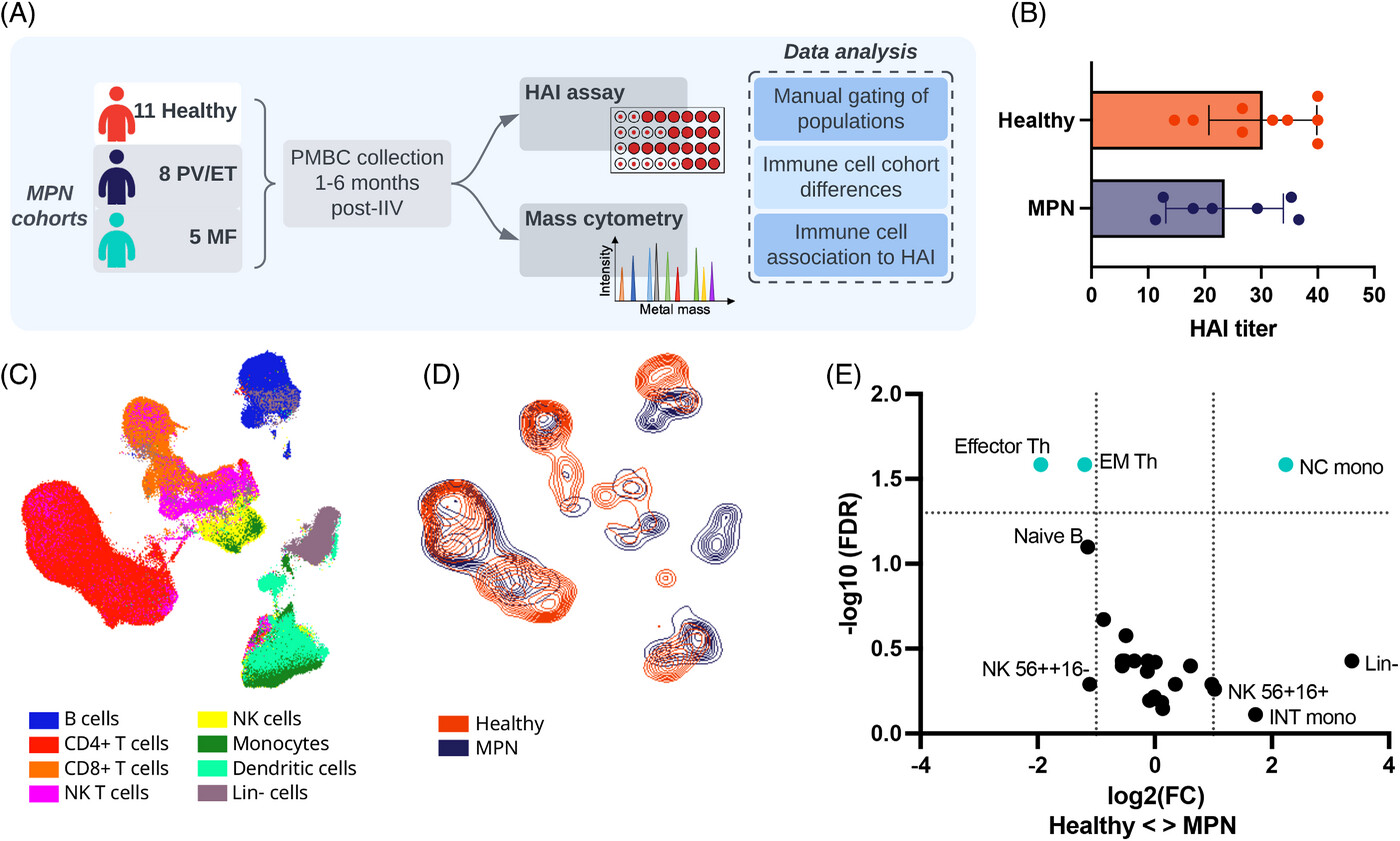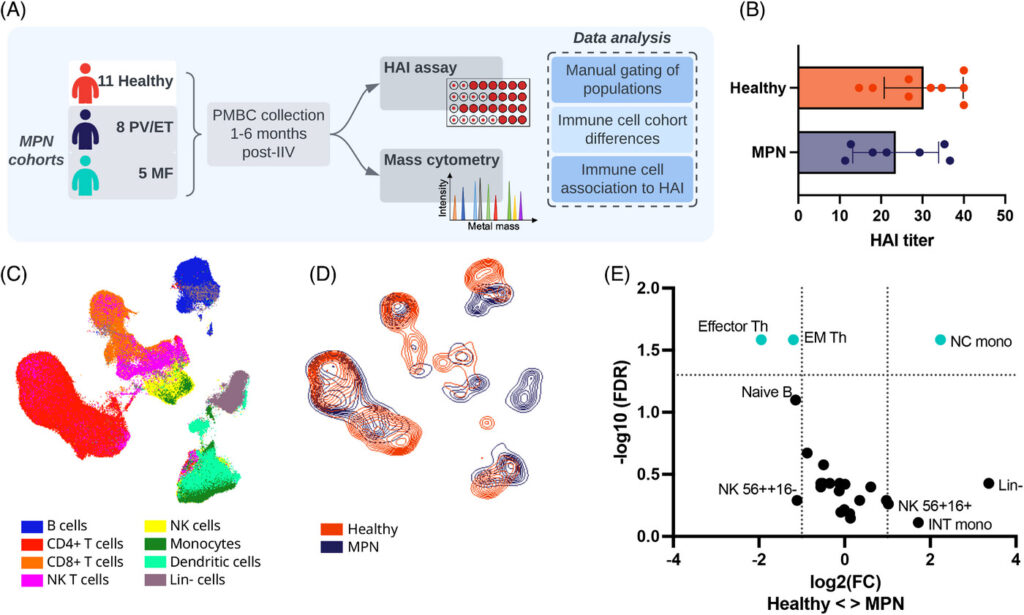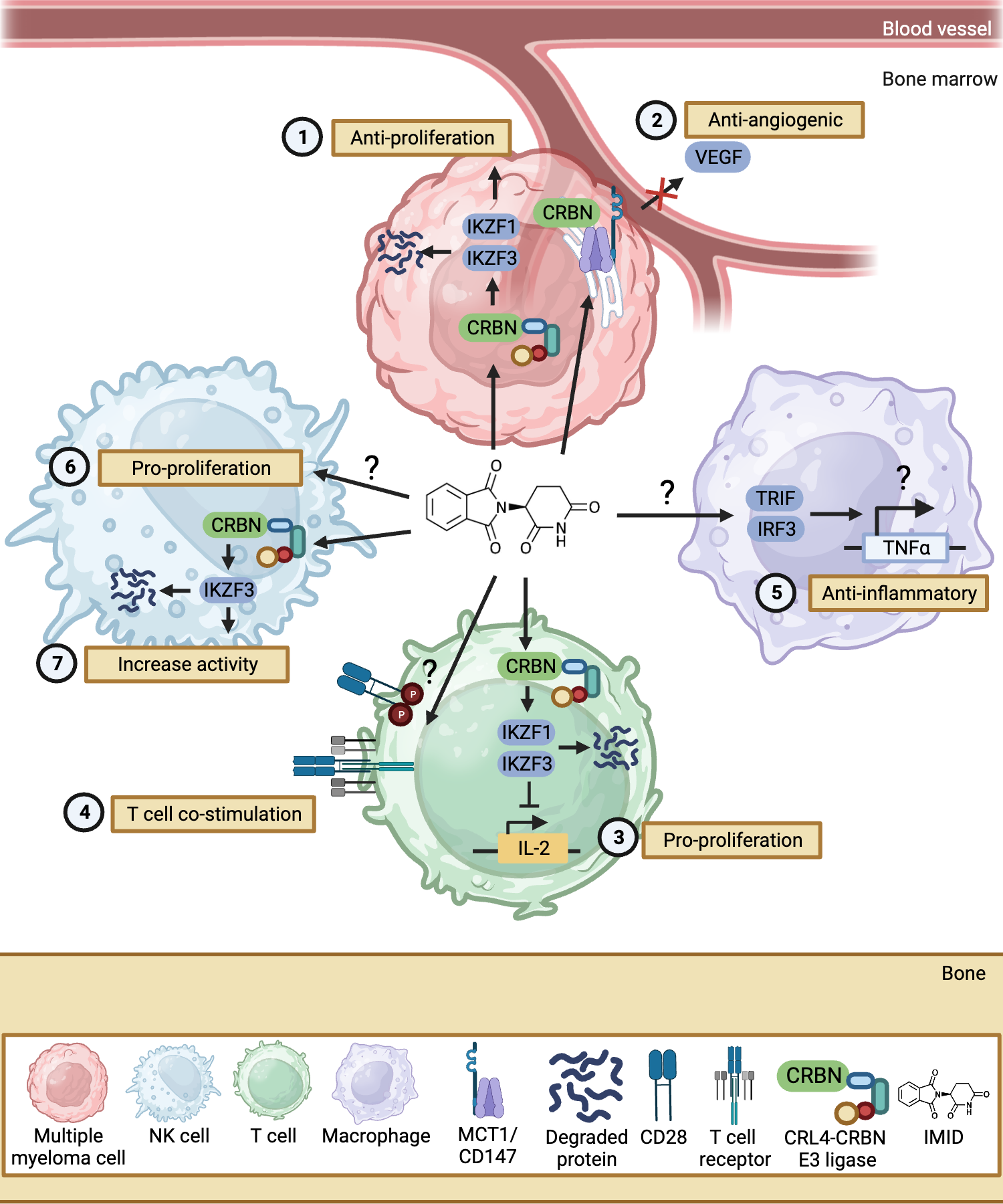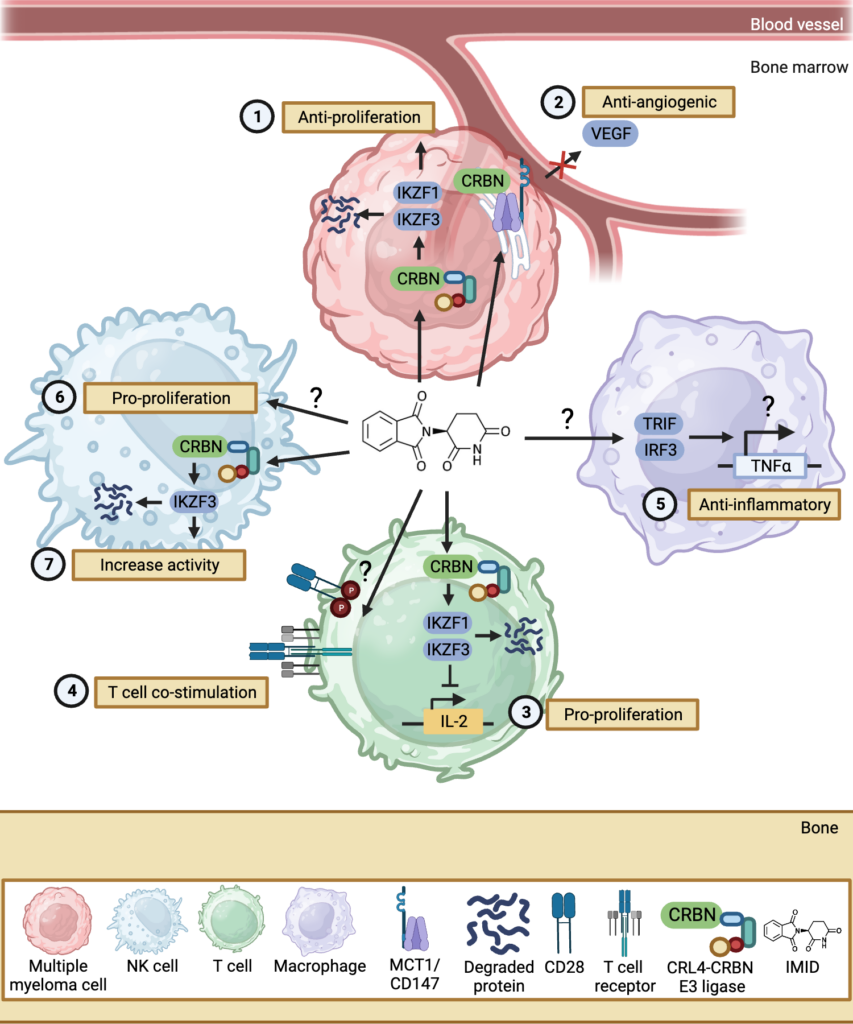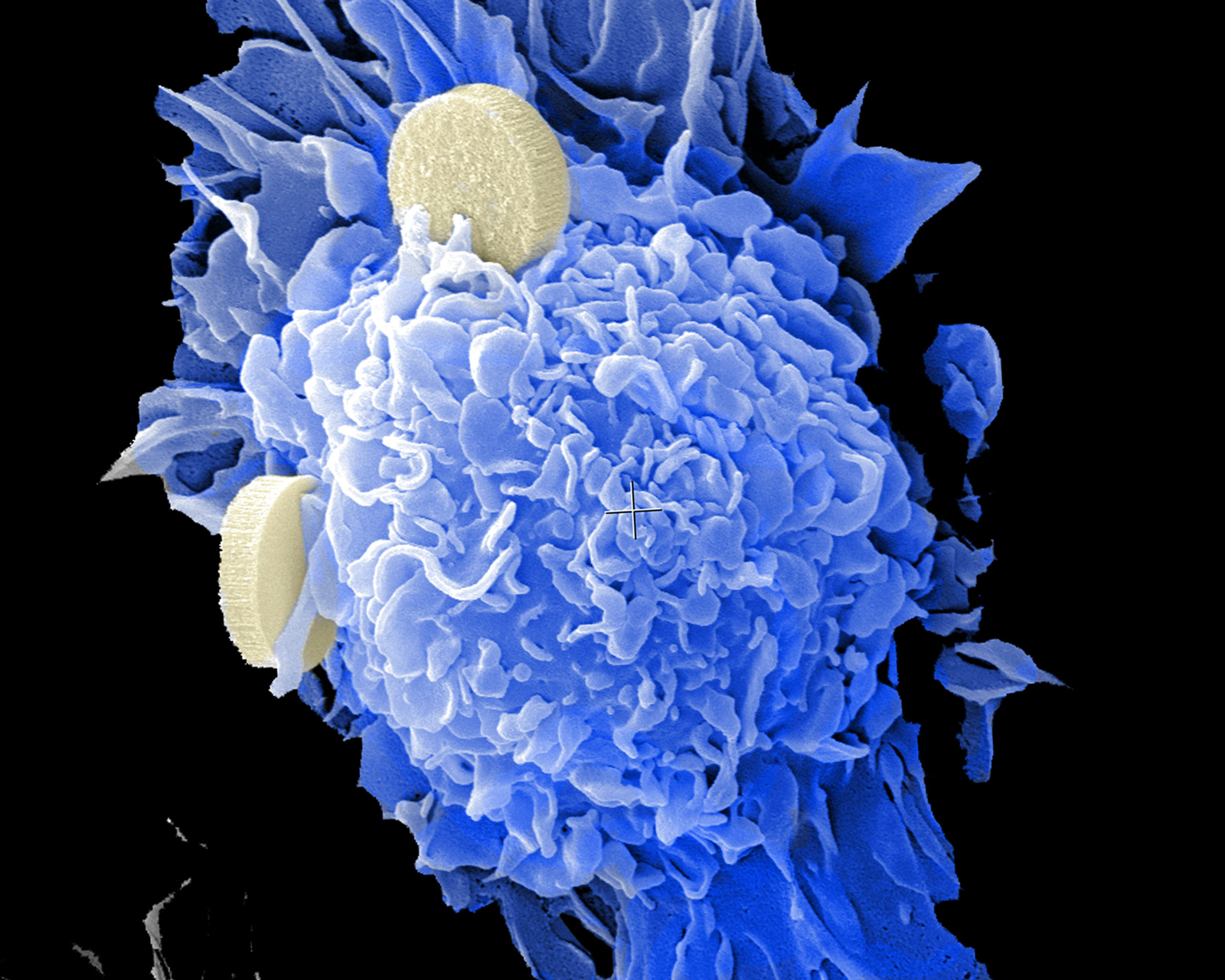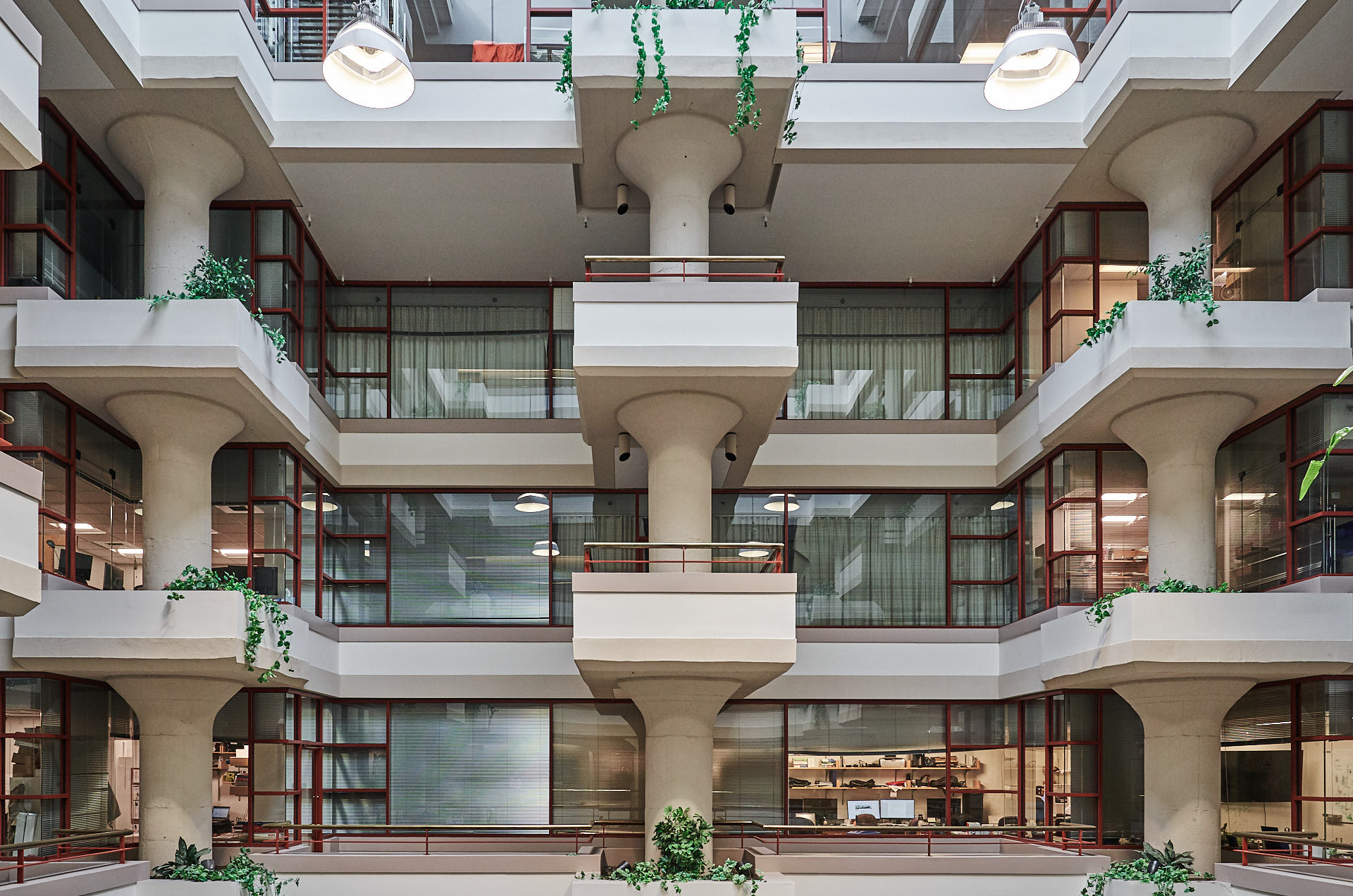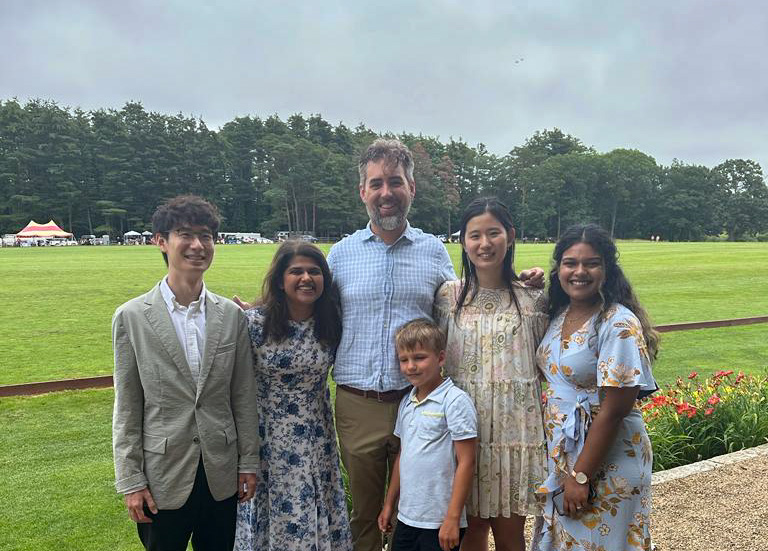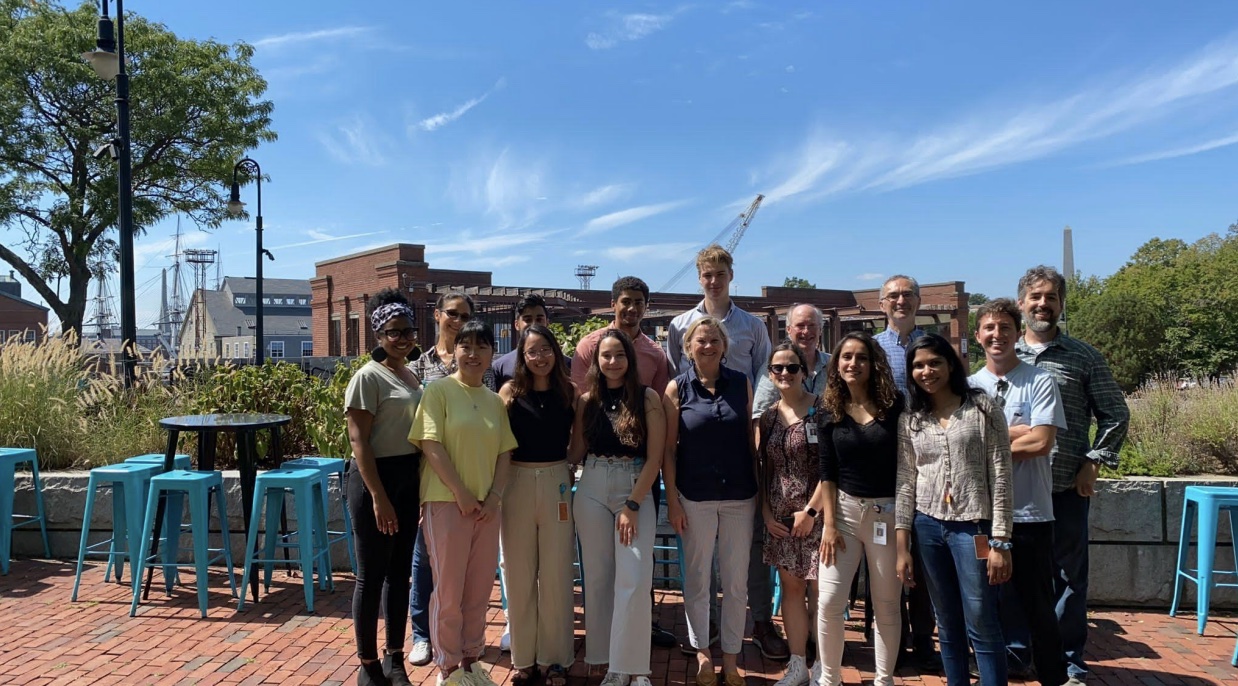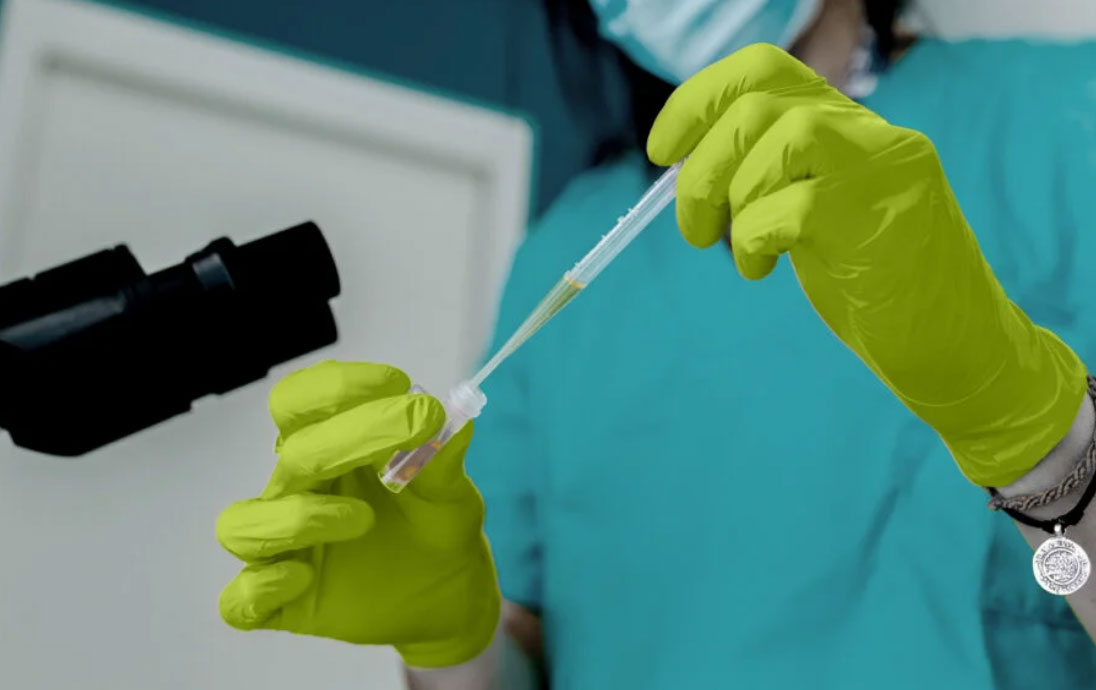The Reeves lab recently published a study in eJHaem exploring the immune system in patients with myeloproliferative neoplasms (MPNs), a type of rare blood cancer. These patients are particularly vulnerable to infections and often require immunosuppressive drugs, highlighting the importance of effective vaccination. Our study found that MPN patients exhibit significant changes in immune cells, including decreased effector and memory T cells and reduced maturation marker expression on B cells. These changes imply that specific cells do not effectively travel to the lymph nodes for maturation, potentially leading to a compromised immune response and lower levels of protective antibodies after influenza vaccination. Our findings emphasize the need for further research into the immune dysregulation in MPNs and its impact on vaccine efficacy, aiming to improve vaccination strategies for this at-risk population.
Immunomodulatory drugs: a promising clinical ally for cancer immunotherapy
Our team at VIC recently published a review article in the Trends in Molecular Medicine Journal, under the guidance of Dr. Gemechu. Clinical trial data increasingly show that targeted immunotherapies such as antibodies, T-cells and vaccines improve outcomes when delivered in combination with the immunomodulatory drug (IMiD) derivatives lenalidomide or pomalidomide. We review these clinical data to highlight the relevance of IMiDs in combinatorial immunotherapy for both haematological and solid tumours. Further research into the molecular mechanisms of IMiDs and an increased understanding of their immunomodulatory effects may refine the specific applications of IMiDs and improve the design of future clinical trials, moving IMiDs to the forefront of combinatorial cancer immunotherapy. With these areas of focus, over the next decade, we expect IMiDs to become core components of the cancer immunotherapy armamentarium not only for MM but for a range of other tumour types as well.
Targeting metabolic pathways to counter cancer immunotherapy resistance: Trends in Immunology
Our team at VIC recently published an opinion article published in Trends in Immunology Journal under the guidance of Dr. Gemechu. Immunotherapies have revolutionized treatment outcomes for cancer, but many cancers are resistant to such therapies. Cancers have an altered environment compared to healthy tissue, and part of this is due to changes in the metabolism of cancer cells. Recent research has centered on modifying such metabolic pathways combined with cancer immunotherapies. In this opinion piece, we explored the potential pitfalls of current preclinical research and how these can be addressed to accelerate the development of such drugs. We also analyzed the results of published clinical trials and suggested improvements for the methodology of preclinical studies. We hope that in the future, researchers can consider these ideas in their preclinical research, resulting in successful outcomes in clinical trials.
High school senior Benjamin Shaer reflects on his summer in the VIC lab.
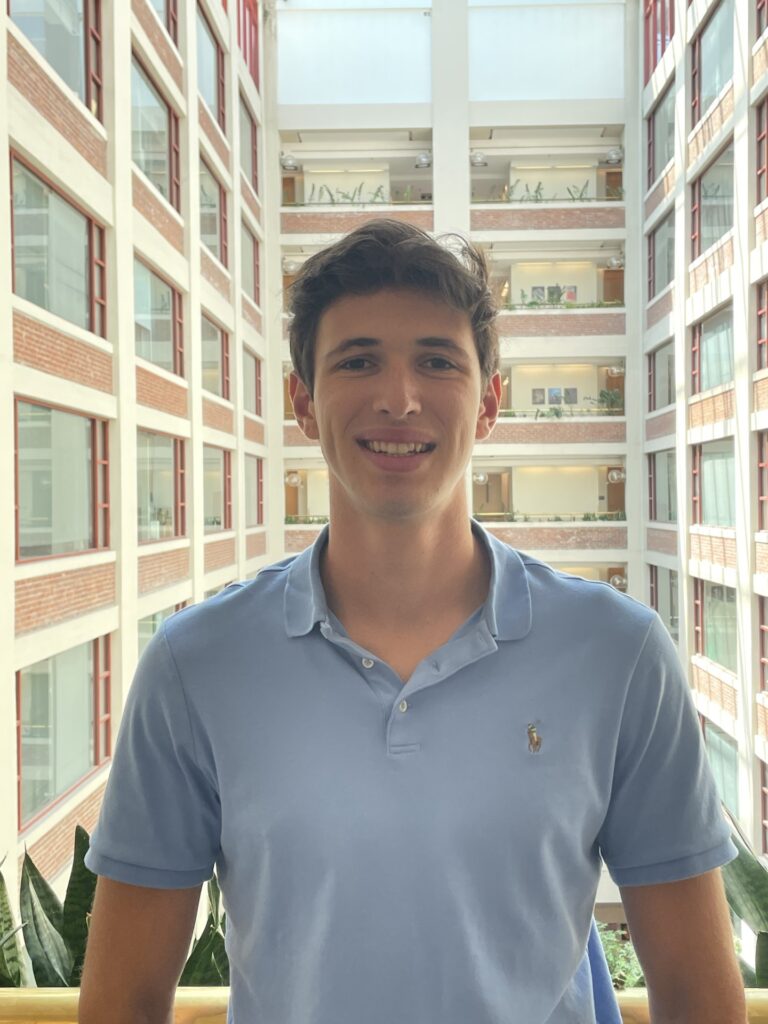
This summer I had the privilege to work as a summer research student at the Vaccine and Immunotherapy Center (VIC) in Boston for eight weeks. Going in on the first day with no prior research experience I was unsure what the day would bring, but I soon found an environment filled with comradery, mentorship, and a pure passion for science. Through the weekly “Tea-Time” on Mondays and regular lab gatherings, I started to feel comfortable learning from the experiences of researchers and other students and seeking their guidance. Dr. Mark Poznansky, director of VIC, provided me with generous mentorship. We met frequently to delve into vital scientific principles, including objective result analysis, thorough documentation of lab activities, and the importance of avoiding assumptions.
Under the mentorship of Dr. Fatma Dogan, I worked on the Nanoplasmid Project. The project’s goal is to develop a novel, safe, and effective islet-targeted gene delivery system to restore and enhance immune protection of the pancreatic islets. I started my time at the lab shadowing Dr. Dogan and learning key laboratory and data analysis skills. Eventually, my work entailed performing transfections in cell culture and finding new ways to measure the transfection efficiency.
My experience this summer will forever stay with me as my first step into what I hope will be a long journey in the pursuit of science. This summer was an unforgettable adventure, and I will always remember the incredible people that were part of it. As my work was filled with early morning and late nights, I learned from the example of my colleagues that science isn’t simply a job; it’s a lifestyle. I look forward to continuing to work with these inspiring people on such vital research.
Nanna Sivamanoharan is an MD student at the University of Edinburgh Medical School who spent the summer working in the lab at VIC.
My 12-week internship at the Vaccine and Immunotherapy Center (VIC) in partnership with Massachusetts General Hospital (MGH) was a profound experience that reshaped my understanding of the dynamic intersection between research and clinical practice. The bright minds at the VIC played a vital role in shaping my professional growth, as well as my personal development. Professor Mark Poznansky, VIC director, exemplified leadership and dedication to advancing research. His open-door policy allowed interns like me to interact with top-notch researchers and clinicians. Dr. Patrick Reeves was not just a mentor but a guiding light throughout my internship. His expertise in immunology and his unwavering belief in my potential as a scientist motivated me to produce the best possible summer project for the lab. My project focused on the application of multiplex immune cytometry to mesothelioma samples, but it was the invaluable collaboration with clinicians and the insight into the transition between research and clinical care that made this journey truly exceptional. Weekly lab meetings and events made me feel welcome as well as safe to ask questions and discuss experimental findings and data analysis. Boston as a city, has a lot of tourist attractions, but my favourite time spent in Boston is having lunch with the other scientists by the Charlestown Navy yard waterfront. There was a bit of downtime during the data analysis of my project, which allowed me to travel out to Acadia National Park, Cape Cod and New York on three separate weekends. All in all, the internship has solidified my career goal to become a clinical researcher and I am truly grateful to Professor Mark and Dr. Patrick for giving me this incredible experience.
*Nanna and the team in the Reeves lab at the VIC polo event from July. She is pictured first on the right.
James Adeosun is a student at Clare College of the University of Cambridge who spent the summer working in the lab at VIC.
This summer, I was fortunate enough to spend 11 weeks at the Vaccine and Immunotherapy Center (VIC) in Boston, immersing myself in immunology research. The VIC is directed by Professor Mark Poznansky, whose enthusiasm for science emanates around the lab. The placement was absolutely fantastic! From a research standpoint, the work seemed to be right on the cutting edge of immunology. The project I was working on centered around their self-assembling vaccine technology, mainly in the context of a therapeutic HPV vaccine. Specifically, I was testing whether using microneedle arrays was a viable method of vaccine administration, whilst also developing an in vitro assay for testing both this and other vaccines. We also theorized a new vaccine model based on some literature from a Chlamydia trachomatis vaccine trial at Hammersmith. Additionally, I got to go to the main MGH campus and see a few patients with Prof. Poznansky, which was very exciting as a medical student; the hospital was incredibly impressive. Beyond the science, the lab environment was very inspiring, with people from many different backgrounds working towards similar aims. Frequent lab events meant that I felt very welcomed from the start, and very involved by the end. For example, I was asked to arrange weekly seminars for the intern cohort, led by principal investigators of the various labs within the VIC. I was also afforded an in-depth insight into some of the technicalities of research, such as the grant writing process, as well as the possibility of having a mixed clinician / research role. The city of Boston itself had lots to offer in the downtime. Excellent public facilities and social venues provided a great cultural experience. Highlights included the famous Boston Freedom Trail, as well as eateries serving variations of the popular local hit, clam chowder. Furthermore, Boston is closely apposed to many important tourist destinations. This allowed me to travel to both Cape Cod and NYC on separate weekend trips, providing a more rounded cultural experience of the USA. In summary, the placement afforded me the opportunity of a lifetime, both academically and in terms of broader life experience, and for that I am incredibly grateful.
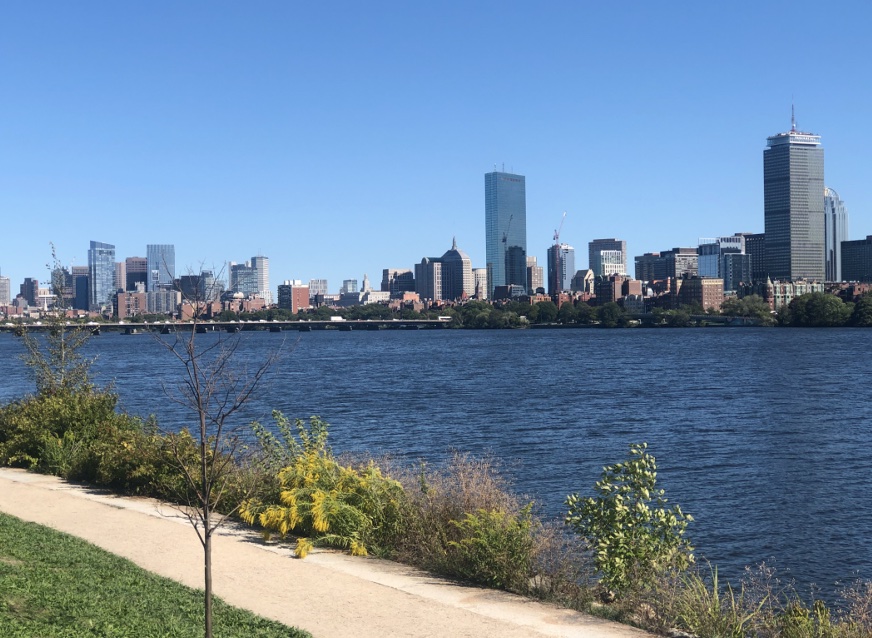
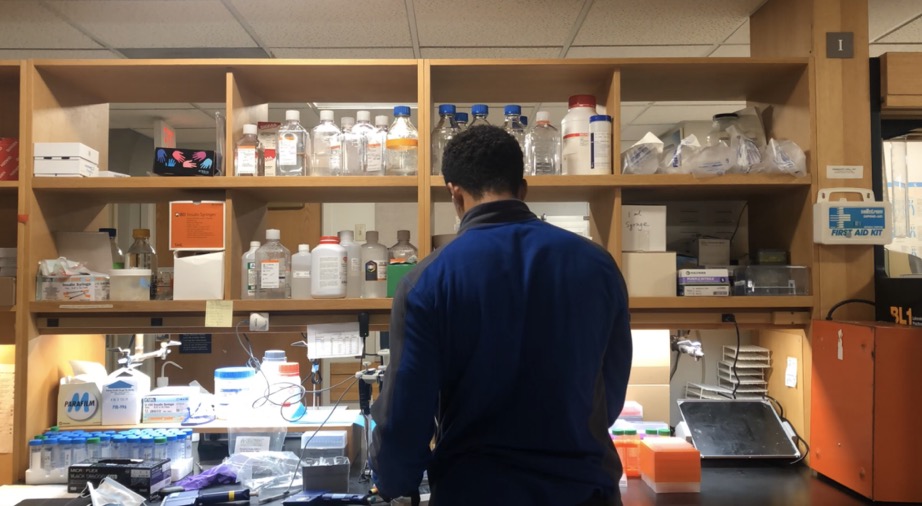
Bifunctional cancer cell–based vaccine concomitantly drives direct tumor killing and antitumor immunity
Despite the extensive research conducted on cancer vaccines and related therapeutics, glioblastoma remains uncured. Treatment options fall into a combination of surgery, radiation, and chemotherapy in an effort to slow tumor growth. In a promising new study led by researchers from Brigham and Women’s Hospital, potential is seen in a new cell therapy that contributes to both the elimination of current tumors and prevention of tumor recurrence, seen in mouse models of glioblastoma. The new cell therapy repurposes live tumor cells with gene engineering, altering these cells to release dual cell-killing and immunomodulatory agents, capable of killing tumor cells and stimulating the immune system for further cancer prevention.


